|
This is a brief introduction to the most common intestinal parasites that infect dogs. Many of these are zoonotic, which means that they are contagious/communicable to humans. It is extremely important to follow the guidelines established by the Companion Animal Parasite Council (CAPC) and the Center for Disease Control (CDC). Please visit their websites for a more in depth discussion of these parasites and many others.
- To reduce human exposure, puppies and kittens should be dewormed.
- Adult animals may also need to be treated for patent infections.
- Good hygiene can help prevent infections or severe disease.
- Hands should be washed before eating.
- Children should be taught not to eat soil, and to wash their hands after playing with pets or outdoor activities.
- Children should not be allowed to play in areas where animal feces are found.
- Families may also consider postponing the acquisition of a new pet until children are past the toddler stage.
- Handwashing prior to breast feeding or preparation of formula is strongly recommended.
CAPC and the CDC recommend: Twice yearly fecal exams and monthly deworming for all animal companions.
Roundworms
Toxocara canis and Toxascaris leonina, also known as ascarids, are common in dogs. Roundworms may cause or contribute to diarrhea, stunted growth, poor haircoat, and poor weight gain. These parasites live in the small intestine of affected dogs and the infective eggs are shed in the feces. T. canis can cause visceral larval migrans* in humans.
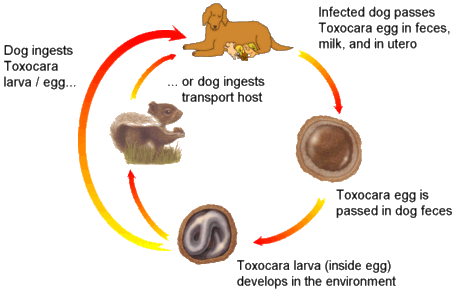
*Visceral larval migrans in humans results in skin rash, fever, failure to thrive, neurologic signs, cough, pulmonary infiltrates, and enlarged spleen and/or liver. Children between 1 and 4 years of age are most at risk. Humans are infected by ingestion of larvated eggs.
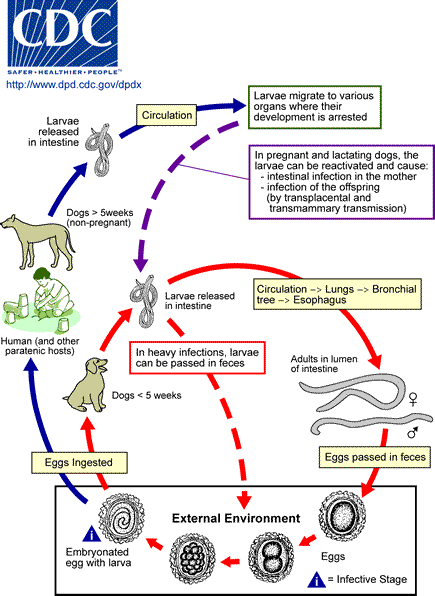
Hookworms
Ancylostoma species and Uncinaria species are common in dogs. These dangerous, blood-sucking parasites live in the small intestines of affected dogs and can cause severe anemia due to blood loss. Stools may appear loose and dark. Hookworms can cause cutaneous larval migrans* in humans.
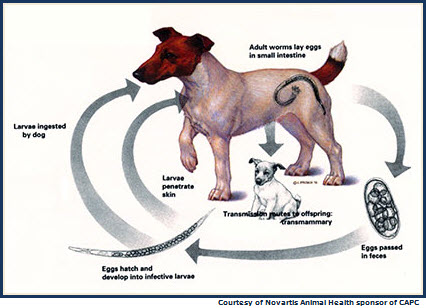
*Cutaneous larval migrans results in abdominal pain and/or a reddened and itchy skin tunnel. Humans are infected by skin penetration.
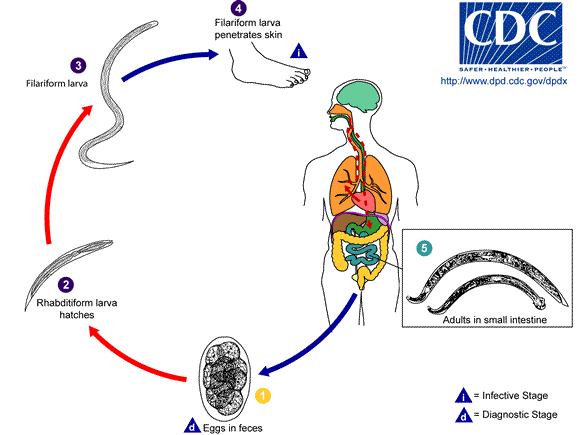
Tapeworms
Taenia species, Diplidium caninum, and Echinococcus species are unsightly rice-like segments that are seen under the tail or on feces. Dogs become infected by ingesting fleas or lice. Echinococcus species are a human health hazard and spread throughout the liver and other tissues. Diplidium infestation is most common in children and can lead to diarrhea and extreme itching around the anus. Transmission to humans occurs following the ingestion of the flea for Diplidium and ingestion of the eggs for Echinococcus.
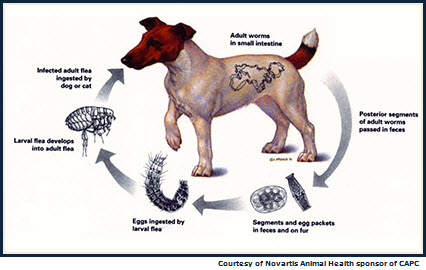
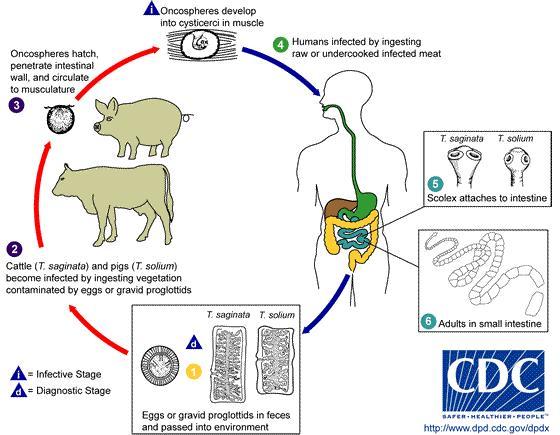
Whipworms
Trichuris vulpis is principally found in the eastern United States. These parasites live in the large intestine (colon) and may cause inflammation, bleeding, and intestinal protein loss.
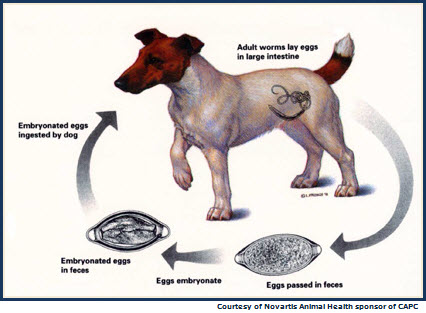
Heartworms
Dirofilaria immitis is transmitted by mosquitoes and all dogs are at risk of this fatal disease. Heartworm disease is an important cause of pulmonary hypertension. The adult worms live mainly in the pulmonary arteries and can cause coughing, syncope (fainting), fatigue, dyspnea (trouble breathing), shortness of breath, weight loss, bloody sputum, or signs of heart failure. There are reports of humans contracting heartworm disease.
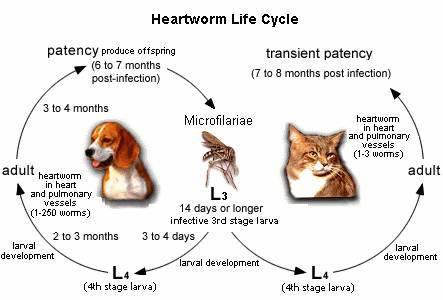
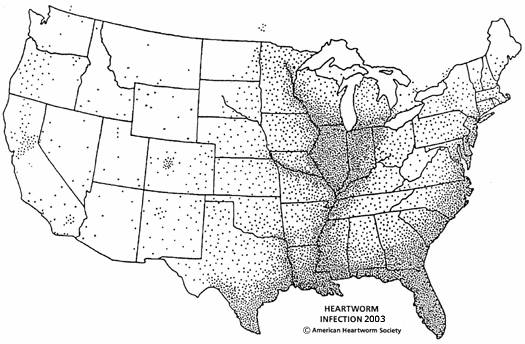
Giardia
A single-celled protozoal organism that lives in the small intestine and is often associated with diarrhea in puppies that have consumed contaminated water. It is uncertain whether people may become infected with the Giardia species that are shed from dogs. The CDC (Center for Disease Control) recommends humans take full precautions around infected animals.
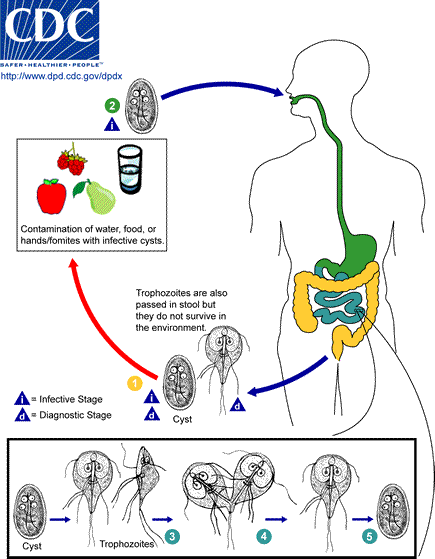
Coccidia
Isospora species are another common protozoal organism that can cause diarrhea and GI upset. This parasite is not contagious to humans.
|














